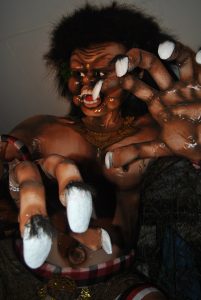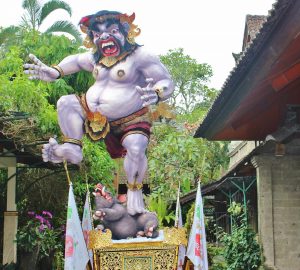It took this snowbird fleeing our Canadian Winter to make me realize I love lettuce. The year was 1996 when we fled to Indonesia to spend three unforgettable months in Bali.
We lived in Sanur village within walking distance to the beach and its many famous restaurants. Kuta Beach, only about a half hour away, is the more famous one. Crazy nightclubs crowded streets, restaurants, shopping, tourists, and the place to party and have fun. Sad to say Kuta Beach was also the site of a terrorist bombing on October 12, 2002.
It was in Bali that we met our Dutch son, Duncan (See post: A Most Unusual Birthday) and together we discovered Bali. We had some remarkable experiences among which were:
Attending a funeral rite including the burning of the body;
Visiting Pura Besakih, the Mother Temple, while an important religious ceremony was in progress;
Being served tea on the beach in raised, open, luxurious Japanese tea house tent-like structures at the magnificent hotel in Nusa Dua;
Getting a spontaneous invitation to an afterbirth ceremony and family celebration;
Getting up close but certainly not personal with a Komodo dragon on Komodo Island;
Watching the amazing carvers in Ubud bring out the most intricate art from pieces of wood;
Dining on fresh caught fish at Jimbaran Bay.
Our travels took us everywhere. Duncan was our intrepid driver, bobbing and weaving among the multitude of motorcycles carrying entire families on one small scooter.
But back to lettuce. When we had arrived in Bali we were given brochures full of information for foreigners. They stressed drinking bottled water and not using ice that was not made from purified water. In fact, in our apartment, though there was a fully functioning bathroom, we were brought pitchers of boiled water every morning to brush our teeth.
In Balinese culture there are the sacred elements of which water was perhaps the most revered. It was the lifeblood, the cleansing power, a major highway to Nirvana.
Every rite involved water. Everything was done by, in or near the water. Everything!
All three of us, as seasoned travellers had not drunk any water nor ate anything that was not peeled, boiled or cooked. Sure there were ‘western restaurants’ and very upscale hotels which we frequented.. However, even in those establishments I could not and would not eat anything raw. Thus for three whole months I did not have a raw salad. You can cook tomatoes, pickle cucumbers and boil all kinds of vegetables but, as far as I knew no-one yet had discovered a way to boil lettuce.
We had arranged to stop in Hawaii for two weeks on our way home. The plane landed. We got to our hotel and as we registered I asked about restaurants with a salad bar. Hotel receptionists are used to a variety of interesting questions. I was told that there were quite a few restaurants in Honolulu with salad bars. I smiled politely and told him that after unpacking we would come for directions to one of those restaurants.
After a 12 hour flight from Denpasar to Honolulu we were tired and hungry so it was not long before we were ready to go out for dinner. We went to the Reception. There was someone new at the desk.
“Hi. Would you direct us to a restaurant near…”
“Oh, yes, Ma’am….
“Excuse me. It must have a salad bar”
A curious glance then: “Sure, ma’am. Do you want seafood, a steakhouse or one with local specialties?”
Bert: “We are not fussy. Any of those will do…”
“But it must have a salad bar”, I interjected.
The look has gone beyond curiosity. “Should there be anything special on the salad bar”?
Now I am wondering about that question but decide that maybe she thinks I am a vegetarian.
“It must have lettuce.” The woman behind us giggled. The Receptionist’s eyes blink, no doubt to contain her own laughter. I reviewed the whole conversation in my head and thought perhaps they would decide to ask this crazy woman who seems to have an abnormal fixation on lettuce to vacate the premises.
I laughed and said: “I have not had lettuce in three months and have discovered that I really do love it. There was an undertone of relief as with a smile she said: “Then we must get you to a salad bar right away.”
The Meander: Prior to our Bali winter lettuce was just lettuce. I ate it. It was a triviality. However no food has ever tasted as good as that lettuce on that salad bar. We take so much for granted that sometimes it takes loss for us to appreciate what we have.


